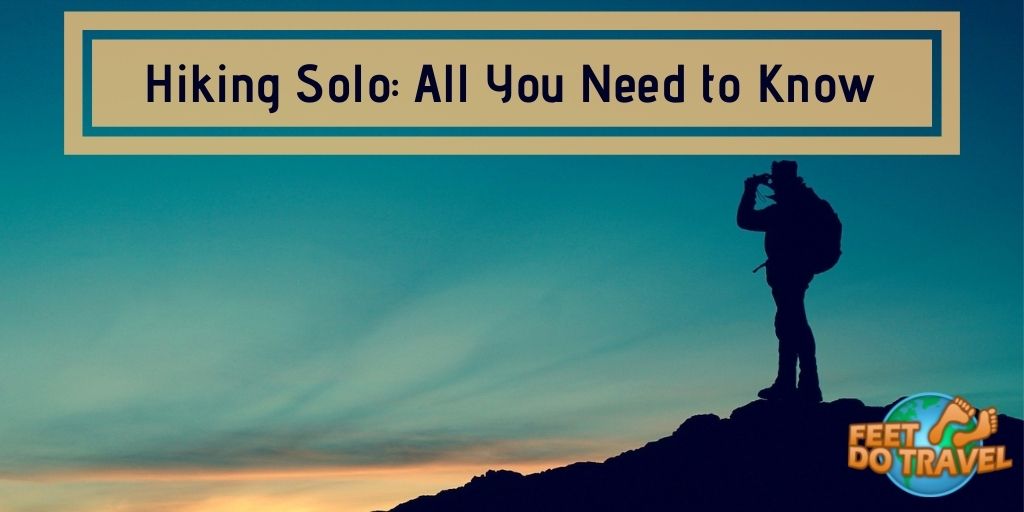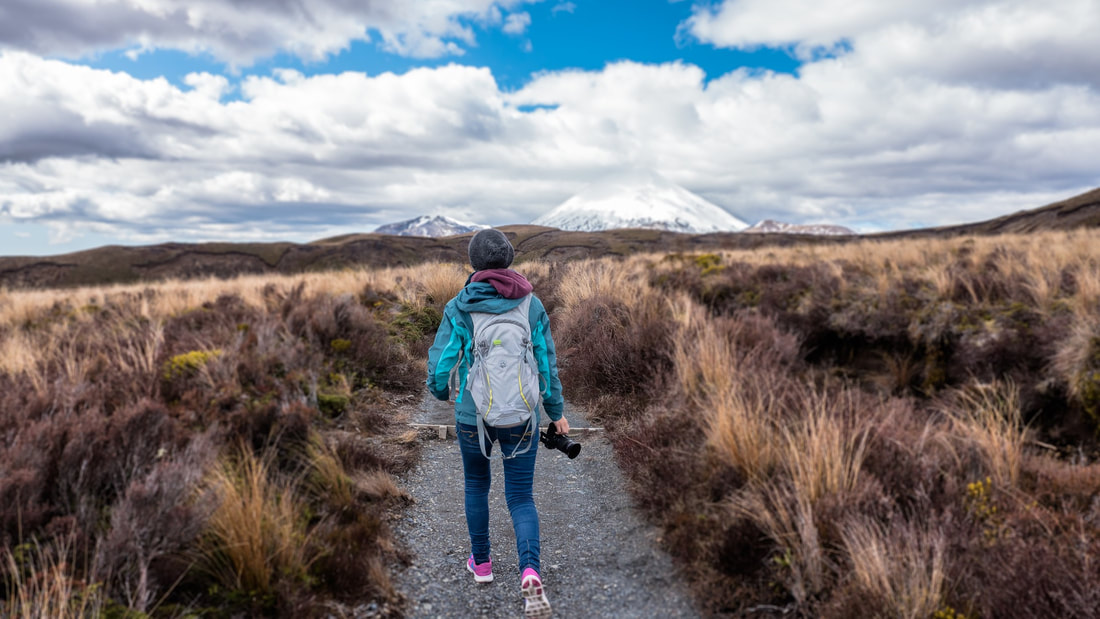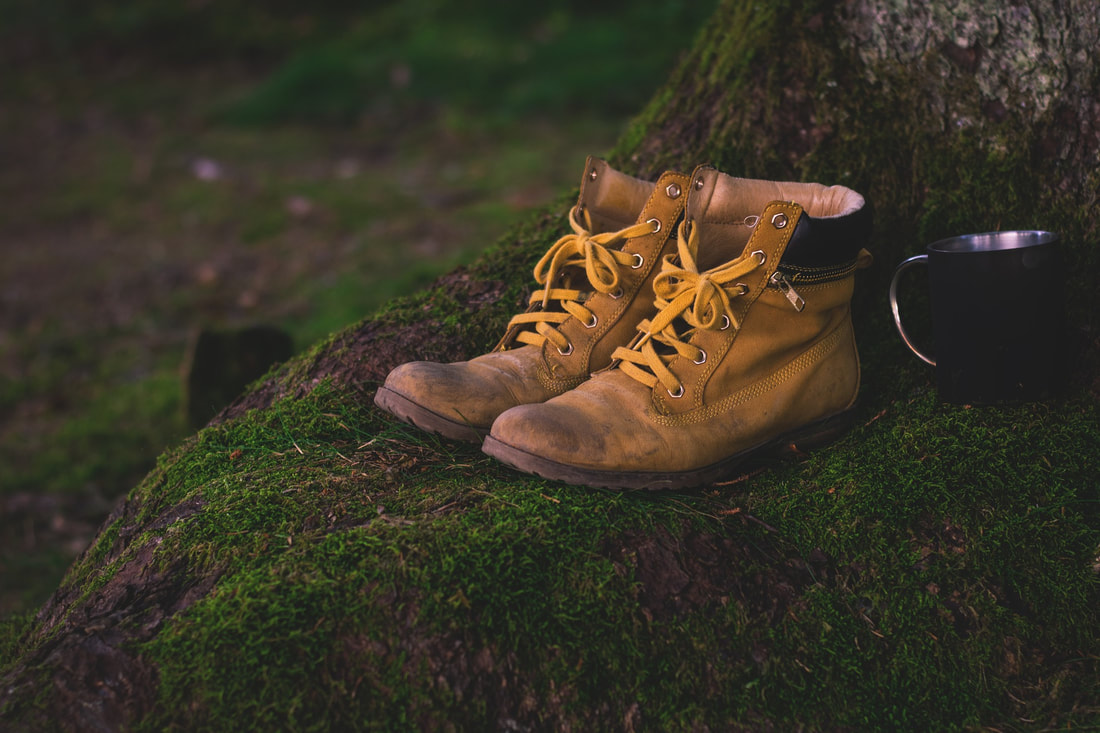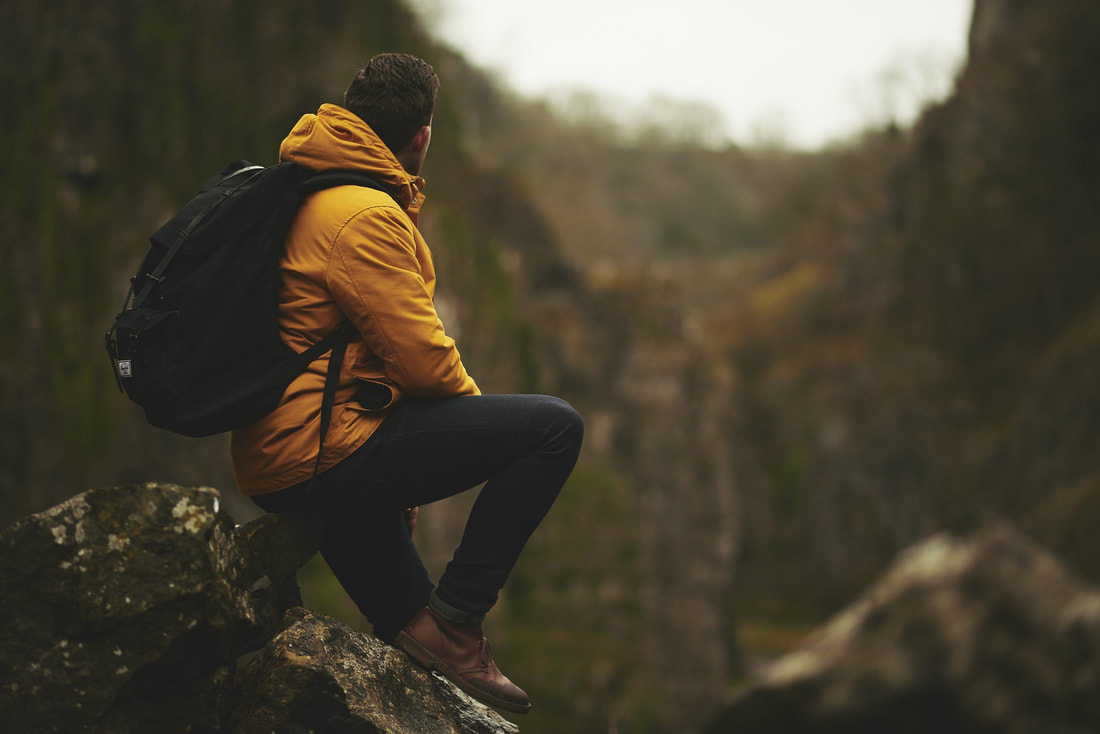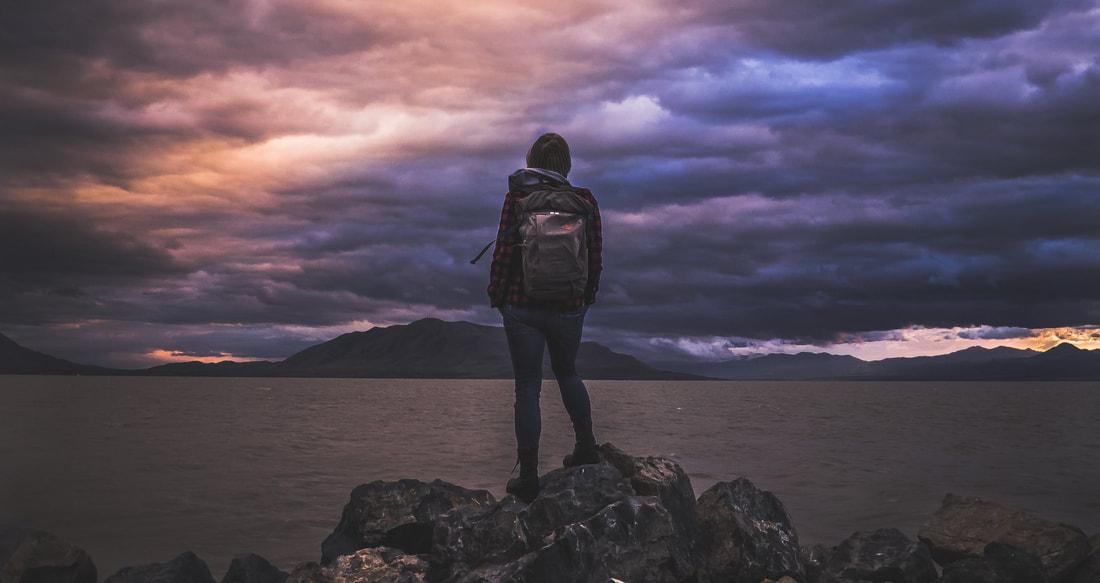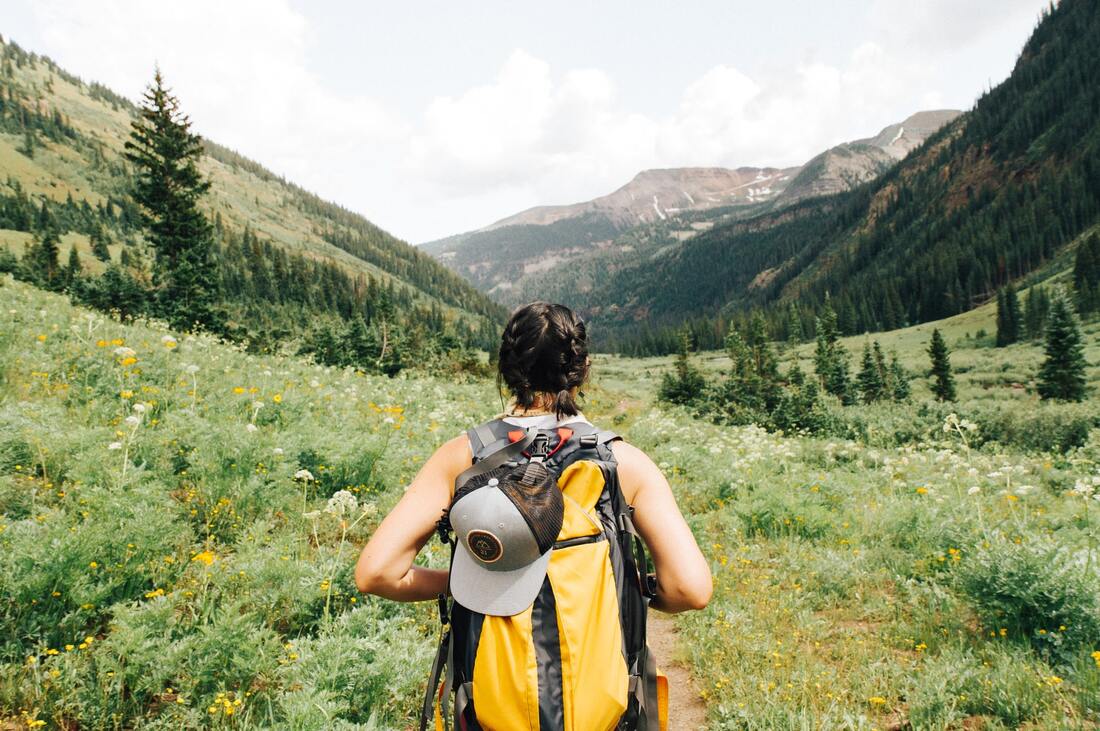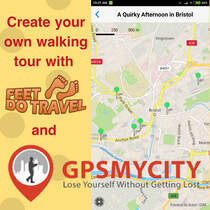If you are planning to take your first solo hike, you will want it to be safe and successful. Hiking solo is a great challenge and is something everyone should try in their lifetime. It will help clear your mind, test your mental and physical stamina and make you stronger.
Trekking solo isn’t without it’s risks, but if you plan properly in advance, prepare the right gear and are sensible, your adventure will be exciting and most of all, rewarding.
Feet Do Travel have prepared this guide to help you through some of the most essential parts of a great hike. So without further ado, let us look at everything you need to know before hiking solo and venturing into the wild.
Trekking solo isn’t without it’s risks, but if you plan properly in advance, prepare the right gear and are sensible, your adventure will be exciting and most of all, rewarding.
Feet Do Travel have prepared this guide to help you through some of the most essential parts of a great hike. So without further ado, let us look at everything you need to know before hiking solo and venturing into the wild.
Preparation
One of the keys to a successful solo hike, as with any outdoor activity, is to bring the right gear with you. When going solo you must be extra careful of what you decide to bring as there is no one around to help you. That being said, you must be mindful of choosing lightweight essentials. You can also combine your solo hike with camping to further extend your adventurous experience, but this will also add to the gear and equipment you need to take. You can check Hyke & Byke for professional, high-quality camping gear in ultra-light designs. This way your tent, sleeping bag and pad won’t add a lot of load, but you’ll have enough space for food, water and clothes. Additionally, make sure you have the right sleeping bag for the temperatures expected so you stay warm and safe.
Let’s take a look at an essential packing checklist that will ensure you are ready to go and have all you need for any given situation.
One of the keys to a successful solo hike, as with any outdoor activity, is to bring the right gear with you. When going solo you must be extra careful of what you decide to bring as there is no one around to help you. That being said, you must be mindful of choosing lightweight essentials. You can also combine your solo hike with camping to further extend your adventurous experience, but this will also add to the gear and equipment you need to take. You can check Hyke & Byke for professional, high-quality camping gear in ultra-light designs. This way your tent, sleeping bag and pad won’t add a lot of load, but you’ll have enough space for food, water and clothes. Additionally, make sure you have the right sleeping bag for the temperatures expected so you stay warm and safe.
Let’s take a look at an essential packing checklist that will ensure you are ready to go and have all you need for any given situation.
The essentials
We have a few essentials in mind, however there are some useful optional items you may want to take:
Firstly, ALWAYS Make sure someone is aware of where you are going so they can search for you in the event of an emergency.
Essentials:
Optional:
We have a few essentials in mind, however there are some useful optional items you may want to take:
Firstly, ALWAYS Make sure someone is aware of where you are going so they can search for you in the event of an emergency.
Essentials:
- Backpack / Rucksack
- Ample food and water
- First aid kit
- Lighter / Matches
- Torches and spare batteries
- Good quality footwear
- Dry and warm clothes (consider waterproofs and headwear)
- Map and compass
- Emergency blanket
- Mobile phone for emergencies
Optional:
- GPS Device with planned trail marked
- Light-weight tent and sleeping bag
- Small knife or multi-tool
- Power bank for charging phone
- Water purification tablets
- Insect repellent and sun cream
Things you need to know about solo hiking
Take small steps
It’s not all about you going out on a solo hike for multiple days immediately. Take small steps first. You should start small and build up over time.
This way you’ll be able to build your stamina and learn new things at a good pace. As you gain experience, everything will look much more familiar and manageable to you. Also, try not to overdo it with hiking. Start with small distances, and increase them over time.
Take small steps
It’s not all about you going out on a solo hike for multiple days immediately. Take small steps first. You should start small and build up over time.
- Start with a day hike
- Try an overnight hike
- Take multi-day hike
This way you’ll be able to build your stamina and learn new things at a good pace. As you gain experience, everything will look much more familiar and manageable to you. Also, try not to overdo it with hiking. Start with small distances, and increase them over time.
Do regular check-ins
Always inform someone of where you’re headed, your directions and how long you plan to be gone. Processes like this lower the risk of you getting lost or stuck somewhere along the way. Having a phone with a decent service is also a must. It will be essential if you need to call for help. Grab one of those small battery-charged power banks for your phone. This way, you’ll have your emergency phone battery full at all times.
Be careful which trail you choose
Make sure that the trail is well-known, and often visited by other hikers. It should also be well marked. This lowers your chances of getting lost along the hike, while increasing your opportunity to make new friends with fellow hikers. They will be interested to hear about you and your solo hike!
Check the weather forecast before you travel. It’s better to know whether it’s going to rain, or it’s going to be really hot during the hike. That way, you’ll know how to dress and what gear to pack. Make sure to get enough warm and dry clothes. Even if it’s hot, try not to uncover too much skin because of insect bites - they can be a real mood-killer!
Always stick to the path, especially if it’s your first hike on this trail. However temping it is to explore, it’s risky to go on unmarked paths since you can get lost easily, especially if you are new to hiking and navigating.
Hiking Destination: 5 Best Treks in Nepal
Can solo hiking be dangerous?
Every great adventure carries a certain amount of risk and the same goes with solo hiking. It is a completely different thing when you hike with a group of friends vs. when you hike all by yourself.
Risk of injury
Injuries may occur at all times. Hiking with friends doesn’t prevent that. But, if you get injured and you’re all by yourself, the chances of someone being able to help are slimmer, especially if you’re hiking off the main trail. To prevent this from happening, stick to the trail and always bring the first aid kit with you. Make sensible, conservative decisions at all times to reduce risks.
Getting lost
Another situation that might happen is if you wander off the main trail on unknown terrain. Easily preventable, but it can happen, so make sure that you have your phone with you and go to a place that has cellular network service so that you can call for help in any emergency.
Being unprepared
This is more of a risk for first-time solo hikers. If you underestimate any of the essentials mentioned above, you should classify yourself as unprepared. You might run out of food and water or not have a first aid kit when needed. Maybe you didn’t get enough clothes and now it’s freezing cold. Always make sure to check twice on essentials. The best way to do this is to prepare a list like the one above and always double check your packed items before you travel.
The risk of something happening always exists, no matter if you’re experiencing your first or hundredth solo hike. If you follow the tips given in this article, the risk is reduced to a bare minimum.
Every great adventure carries a certain amount of risk and the same goes with solo hiking. It is a completely different thing when you hike with a group of friends vs. when you hike all by yourself.
Risk of injury
Injuries may occur at all times. Hiking with friends doesn’t prevent that. But, if you get injured and you’re all by yourself, the chances of someone being able to help are slimmer, especially if you’re hiking off the main trail. To prevent this from happening, stick to the trail and always bring the first aid kit with you. Make sensible, conservative decisions at all times to reduce risks.
Getting lost
Another situation that might happen is if you wander off the main trail on unknown terrain. Easily preventable, but it can happen, so make sure that you have your phone with you and go to a place that has cellular network service so that you can call for help in any emergency.
Being unprepared
This is more of a risk for first-time solo hikers. If you underestimate any of the essentials mentioned above, you should classify yourself as unprepared. You might run out of food and water or not have a first aid kit when needed. Maybe you didn’t get enough clothes and now it’s freezing cold. Always make sure to check twice on essentials. The best way to do this is to prepare a list like the one above and always double check your packed items before you travel.
The risk of something happening always exists, no matter if you’re experiencing your first or hundredth solo hike. If you follow the tips given in this article, the risk is reduced to a bare minimum.
Benefits of hiking solo
Solo hikes come with their own benefits. It’s not always about someone keeping you company. Sometimes you need to recharge your batteries and get far away from the city noise. Being alone in this process can help out a lot.
Solo hiking can be life-changing experience and it sure is something everyone should pursue at least once in their lifetime!
Solo hikes come with their own benefits. It’s not always about someone keeping you company. Sometimes you need to recharge your batteries and get far away from the city noise. Being alone in this process can help out a lot.
- Hiking solo gives you the opportunity to hike wherever, whenever you want
- Makes you feel empowered
- You learn about yourself physically and mentally
- Make new friends along the way
- Feel more confident and independent
- Become one with nature
Solo hiking can be life-changing experience and it sure is something everyone should pursue at least once in their lifetime!

